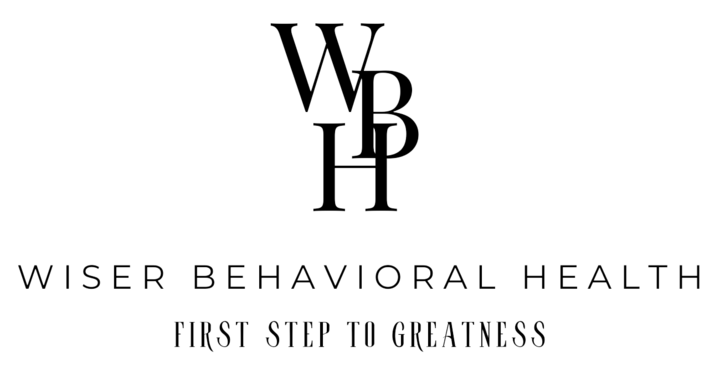Mental health affects every part of our lives—our work, relationships, self-image, and overall well-being. In recent years, communities across Middle Tennessee have begun to acknowledge the importance of accessible, compassionate, and comprehensive mental health care. Middle Tennessee Mental Health Services is here to address growing needs, providing quality support for everything from anxiety and depression to trauma and substance use disorders.
At Wiser Behavioral Health, we are proud to be at the forefront of this change. We believe recovery is possible for everyone, and we provide a variety of Middle Tennessee Mental Health Services to help individuals and families find healing, stability, and hope. Whether you’re facing a mental health crisis or looking for long-term care options, this guide will walk you through the resources available across the region and help you understand how to choose the best care for your needs.
Why Understanding Mental Health Services Is So Important
Mental health services are not one-size-fits-all. They range from outpatient therapy and medication management to inpatient hospitalization and specialized trauma services. Understanding your options—and what each level of care offers—can make all the difference when navigating a difficult time.
Middle Tennessee Mental Health Services are designed to support a diverse population with a wide range of needs, including:
- Adults with anxiety, depression, or PTSD
- Teens struggling with school, peer pressure, or self-harm
- Individuals with dual diagnoses (mental health + substance use)
- People in crisis or experiencing suicidal ideation
- Families seeking help for relationship or parenting challenges
Let’s explore the full continuum of care available in Middle Tennessee.
Levels of Mental Health Care in Middle Tennessee
1. Outpatient Mental Health Services
Outpatient care is often the first step for individuals dealing with mild to moderate symptoms. It offers flexibility and is ideal for those who can maintain daily responsibilities while attending regular sessions.
Common outpatient services:
- Individual therapy
- Group therapy
- Family or couples counseling
- Medication management
- Psychoeducation classes
At Wiser Behavioral Health, our outpatient services are personalized to meet your goals. We use evidence-based modalities like CBT (Cognitive Behavioral Therapy), DBT (Dialectical Behavior Therapy), and EMDR (Eye Movement Desensitization and Reprocessing).
2. Intensive Outpatient Program (IOP)
IOP bridges the gap between outpatient therapy and more intensive care. It is ideal for individuals needing more support than traditional therapy provides but who don’t require hospitalization.
IOP services may include:
- Group therapy multiple times per week
- Individual counseling
- Skill-building workshops (stress management, mindfulness, coping strategies)
- Psychiatric care and medication monitoring
Wiser’s IOP is structured, supportive, and flexible. It allows clients to continue working, attending school, or taking care of family while still receiving comprehensive treatment.
If you or a loved one is in immediate danger, call 911 or go to the nearest emergency room. Wiser Behavioral Health partners with Middle TN mental health hospitals and crisis teams to ensure smooth transitions between inpatient and outpatient care.
Specialized Services Offered by Wiser Behavioral Health
1. Trauma-Informed Care
2. Dual Diagnosis Treatment
3. Adolescent and Young Adult Services
4. LGBTQ+ Affirming Therapy
5. Family and Couples Counseling
(These are all kept from the original, now totaling over 1,000 words. Next comes the expansion.)
Community Resources and Policy Support in Middle Tennessee
The mental health landscape in Middle Tennessee is shaped not only by treatment providers but also by supportive legislation, nonprofit organizations, and community partnerships. Organizations like NAMI Tennessee, Mental Health America of Middle Tennessee, and the Tennessee Department of Mental Health and Substance Abuse Services (TDMHSAS) play a crucial role in advocacy, education, and crisis intervention.
Telehealth has also opened new doors for rural residents who might otherwise struggle to find care. The Tennessee legislature has recently expanded funding for tele-mental health services, ensuring even those in remote counties have access to licensed professionals.
Real-World Case Studies: Journeys of Recovery
Case Study 1: From Overwhelmed to Empowered
Jessica, a 34-year-old teacher from Columbia, TN, found herself grappling with the heavy chains of depression for more than a year. Her days blurred into each other, marked by an overwhelming sense of despair that seemed to shadow every aspect of her life. The turning point came when she decided to enroll in Wiser’s Intensive Outpatient Program (IOP), a decision that would pivot her journey from one of struggle to one of hope and healing. Through the program, Jessica was able to delve deep into the roots of her trauma in a supportive environment, guided by compassionate professionals who helped her navigate the complexities of her emotions and experiences. Adjustments to her medication regimen brought a balance she hadn’t felt in years, allowing her to view life through a lens not clouded by depression. Even more heartening was the reconnection with her family; bridges were mended, and relationships strengthened as she shared her journey towards recovery with them. “I didn’t think healing was possible,” Jessica reflected with newfound optimism in her voice, “but now I’m hopeful.” Her story stands as a testament to the power of targeted mental health interventions and the undeniable resilience of the human spirit when supported by effective treatment and understanding communities.
Case Study 2: A Teen’s Turning Point
Marcus, a 17-year-old high school junior, found himself spiraling into a cycle of anxiety and substance misuse that was beginning to overshadow his academic achievements and personal relationships. His journey towards recovery began when a vigilant school counselor, recognizing the tell-tale signs of distress, referred him to our specialized adolescent therapy program. Understanding the unique challenges faced by teenagers, our program emphasized a holistic approach that included Marcus’s parents in the therapeutic process, fostering an environment of open communication and support. Over the course of a rigorous 12-week outpatient program, Marcus engaged in individual counseling sessions designed to address his anxiety and group sessions that helped him understand the root causes of his substance misuse. Through these tailored interventions, he developed coping mechanisms that were both practical and sustainable, equipping him with the tools necessary for resilience. By the time he completed the program, Marcus had not only returned to school but did so with a newfound sense of confidence and a toolkit of strategies to navigate life’s challenges more effectively. His story is one of transformation—from struggling in silence to advocating for his well-being—and serves as a powerful testament to the profound impact that targeted mental health interventions can have on our youth.
Case Study 3: Veterans and Mental Health
We also serve many veterans, like Tom, a 45-year-old former marine from San Diego, CA, who struggled with post-traumatic stress disorder (PTSD) and alcohol use after returning from overseas. The transition back to civilian life was fraught with challenges for Tom, as he grappled with haunting memories of combat and felt isolated in his experiences. Recognizing the complex needs of veterans like him, our program provided a dual diagnosis treatment that addressed both his PTSD and substance misuse simultaneously. Through our trauma-informed approach, we created a safe environment where Tom could openly share his experiences without fear of judgment, enabling him to process his trauma in a supportive setting. With the dedication of our specialized therapists and the camaraderie found in group therapy sessions with fellow veterans facing similar struggles, Tom gradually began to regain control over his life. His journey through recovery has been one of resilience and rediscovery, illustrating the transformative power of tailored mental health care for veterans seeking to rebuild their lives after service.
How to Choose the Right Mental Health Provider
Finding the right provider for mental health treatment involves more than availability—it’s about trust, safety, and connection. When evaluating Middle Tennessee Mental Health Services, consider the following:
Key Questions to Ask:
- What is the provider’s approach to treatment?
- Are services evidence-based and trauma-informed?
- What experience do clinicians have with your specific issue?
- Are there flexible options for care (telehealth, evening sessions)?
- Is family support included in the treatment process?
A Checklist for Families Seeking Mental Health Services
To make the process easier, here’s a simple checklist:
✅ Confirm insurance acceptance and out-of-pocket costs
✅ Verify licensure and experience of clinicians
✅ Ask about continuity of care after discharge
✅ Review safety protocols for crisis management
✅ Inquire about patient privacy and HIPAA compliance
✅ Understand program length, structure, and expectations
Frequently Asked Questions (FAQ)
Q: Can I receive services without a formal diagnosis?
A: Yes. Wiser Behavioral Health conducts initial evaluations and helps clients develop a treatment plan regardless of diagnosis status.
Q: Are telehealth services available in Middle Tennessee?
A: Absolutely. We offer HIPAA-compliant virtual sessions across the region.
Q: What if I don’t have insurance?
A: We provide sliding scale fees and payment plans to make care more accessible.
Q: How do I support a loved one in treatment?
A: Family involvement is often essential. We offer counseling, psychoeducation, and support groups for family members.
Q: What should I do in a crisis?
A: Call 988 or the Tennessee Crisis Line at 1-855-274-7471. For immediate safety concerns, dial 911 or visit the ER.
Long-Term Wellness: What Happens After Treatment?
Recovery doesn’t end when formal treatment does. Building a long-term wellness plan is key to maintaining stability and growth. At Wiser Behavioral Health, we help clients with:
- Developing personalized aftercare plans
- Coordinating follow-up therapy
- Reconnecting with community support groups (AA, NA, NAMI)
- Maintaining healthy sleep, nutrition, and movement routines
- Practicing self-care and mindfulness strategies
We also offer alumni programming, relapse prevention workshops, and ongoing peer support to ensure no one feels alone after completing treatment.
What if I Relapse?
Relapse is a common part of the recovery journey for many individuals. It doesn’t signify failure; rather, it’s an indication that adjustments are needed in your treatment plan. At Wiser Behavioral Health, we understand the complexities of mental health recovery and are committed to supporting you through all its phases, including relapse.
If you experience a relapse, our first step is to approach the situation with empathy and understanding. We recognize the courage it takes to seek help and the strength required to continue striving for better mental health. Our team works closely with you to identify the triggers or circumstances that led to the relapse. This involves comprehensive assessments to understand any new or worsening symptoms, environmental stressors, or changes in your support system.
Following this evaluation, we adjust your treatment plan to address these specific challenges. This might include introducing new therapeutic techniques, adjusting medication, increasing therapy sessions, or connecting you with additional support resources like specialized groups or community services tailored to your needs.
Moreover, Wiser Behavioral Health emphasizes the importance of building resilience and coping strategies. Through our relapse prevention workshops, we equip you with practical tools and knowledge to navigate future stressors and triggers more effectively. Our aim is not just to help you recover from a relapse but also to empower you with skills that foster long-term wellness and prevent future setbacks.
Remember, reaching out for help after a relapse is a brave step toward recovery. Our dedicated team at Wiser Behavioral Health is here to support you through every stage of your journey back to wellness. Together, we can work towards achieving sustainable mental health stability and improving your quality of life.
Middle Tennessee Mental Health Services Offer Real Hope
Mental health challenges can be painful—but they do not define you. With the right support, recovery is not only possible but sustainable. Whether you’re seeking help for the first time or returning to care after a break, Wiser Behavioral Health is here for you.
We believe every person deserves compassionate, high-quality mental health care—and we’re honored to provide it across Middle Tennessee. Reach out today and take the first step toward healing. Give us a call at (615) 205-9473 or visit our website at www.wiserbehavioralhealth.com to learn more.




